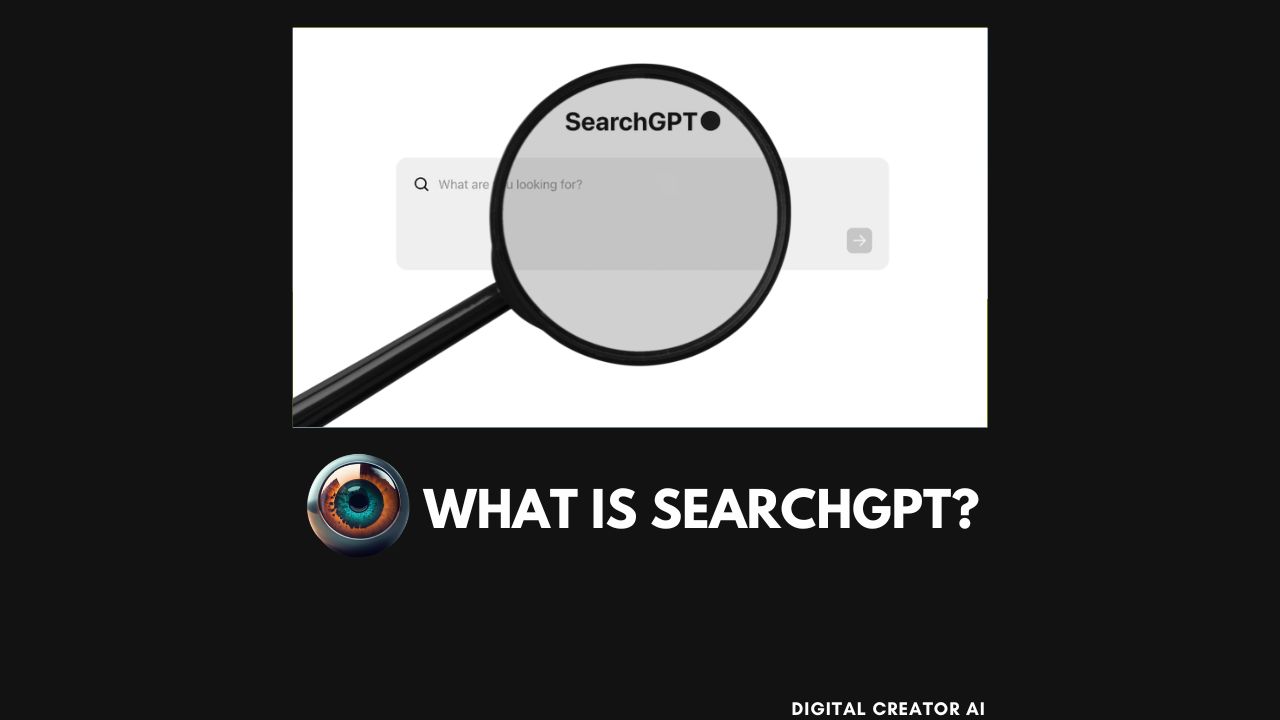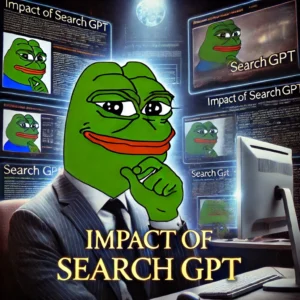OpenAI Launches SearchGPT: The Future of AI-Powered Search
Video source: https://openai.com/index/searchgpt-prototype/
In a groundbreaking move, OpenAI has unveiled SearchGPT, a cutting-edge AI-powered search engine that promises to revolutionize the way we interact with online information. As the digital landscape evolves, the importance of artificial intelligence in search technology cannot be overstated. SearchGPT introduces innovative features designed to enhance user experience, making it a vital tool for both casual users and businesses looking to improve their online presence. In this article, we’ll explore the functionalities, underlying technologies, and implications of SearchGPT, positioning it as a significant player in the search engine arena.
What is SearchGPT?

Definition and Concept
SearchGPT represents a new paradigm in the world of search engines, combining traditional search methods with advanced artificial intelligence. Unlike conventional search engines that rely heavily on keywords, SearchGPT utilizes natural language processing (NLP) to understand and interpret user queries in a conversational manner. This means users can engage in more intuitive interactions, leading to more accurate and relevant search results.
Key Features of SearchGPT
- Real-time Information Retrieval: SearchGPT can pull up-to-the-minute data, making it exceptionally useful for news, events, and trending topics.
- Conversational Queries: Users can ask questions as they would in dialogue, allowing for a more natural search experience.
- Source Attribution for Retrieved Data: Each response includes citations and links to the original sources, promoting transparency and credibility.
- Location-aware Results: SearchGPT tailors results based on the user’s geographic location, ensuring relevance in context.
Underlying Technology: How Does SearchGPT Work?

Natural Language Processing (NLP) and Its Role
NLP is at the core of SearchGPT’s functionality. It allows the engine to parse and understand user intent behind queries, transcending traditional keyword-based searches. Statistics show that 70% of users prefer asking questions rather than typing in key phrases, indicating a shift towards more human-like interactions. By leveraging advanced NLP techniques, SearchGPT can interpret nuances in language, context, and even sentiment, leading to improved search outcomes.
GPT Integration and Its Significance
The integration of generative pre-trained transformers (GPT) enables SearchGPT to not only understand queries but also generate coherent and relevant responses. For instance, when asked, “What are the benefits of AI in search?”, SearchGPT can summarize advantages such as enhanced discoverability, personalized results, and quicker access to information. The strength of GPT technology lies in its ability to provide contextually rich answers, thereby enhancing user satisfaction.
SearchGPT vs. Traditional Search Engines

Differentiating Factors
One of the most significant differentiators between SearchGPT and traditional search engines is their approach to understanding search intent. Traditional search engines primarily rely on keyword matching, often leading to results that may not fully align with user expectations. In contrast, SearchGPT employs semantic search techniques to grasp the underlying intent of queries, delivering results that are not only relevant but also insightful. This shift towards semantic understanding marks a critical evolution in the search landscape.
Impact on the Search Market
The introduction of SearchGPT could disrupt the existing search engine market, as it challenges the efficacy of longstanding players like Google Bing. Businesses may need to adapt swiftly to this new environment, as SearchGPT focuses on enhancing user experience through more accurate and relevant content delivery. Additionally, users may find their search experiences significantly improved, leading to increased engagement and satisfaction.
The Impact of SearchGPT on Users and Businesses

Enhancing User Experience
With its advanced capabilities, SearchGPT significantly improves user experience by offering enhanced content discoverability and relevance. A report from Google Cloud indicates that user impatience can lead to abandoning a search after just a few seconds, with 94% of U.S. consumers reporting they received irrelevant search results and subsequently abandoned their shopping sessions. SearchGPT addresses this by providing quicker, more accurate results, minimizing the need for users to sift through irrelevant information.
Business Implications
For businesses, SearchGPT presents both opportunities and challenges. Companies can leverage this new search engine to improve their organic traffic by aligning their content strategies with the capabilities of SearchGPT. The focus should shift towards producing high-quality, relevant content that addresses user intent. Strategies include optimizing for long-tail keywords, understanding user queries, and critically evaluating content performance to ensure maximum visibility.
SEO Strategies for Navigating SearchGPT

FYI once the SearchGPT is openly avaialable to all, users will truly be able to test best practices.
Currently SearchGPT is in a protoypte stage, and OpenAI users can join a waitlist for early access here: https://openai.com/index/searchgpt-prototype/
Content Creation Best Practices
In the age of SearchGPT, the importance of quality content cannot be overstated. To succeed, businesses must focus on creating relevant content that caters to user queries and utilizes long-tail keywords effectively. Tools such as Ahrefs and SEMrush can assist in conducting thorough keyword research to identify terms with high search volumes and manageable competition.
Metadata Optimization and Structured Data
Implementing schema markup is essential for ensuring SearchGPT accurately indexes your content. Optimizing metadata—including titles, descriptions, and alt text—enhances the visibility of your content. According to industry experts, structured data not only assists in ranking but also enriches the search experience by providing additional context to users, making it easier for SearchGPT to deliver pertinent information.
Building Authority in the Age of SearchGPT
Link Building Strategies
Establishing authority in SearchGPT necessitates a robust link-building strategy. Building high-quality backlinks from reputable websites will enhance trustworthiness and improve rankings. Engaging in guest blogging, collaborating with influencers, and participating in relevant online discussions are effective ways to gain valuable links that bolster content performance metrics.
Voice Search Optimization and Mobile Strategies
As voice search grows in popularity, optimizing content for voice queries becomes increasingly crucial. Techniques for optimizing content for mobile users include ensuring fast loading speeds, simplifying navigation, and prioritizing mobile responsiveness. Studies show that up to 50% of all searches will be conducted via voice by 2025, indicating the necessity of adapting to this trend.
Future Trends in AI-Powered Search
Emerging AI Trends to Watch
As AI technology continues to advance, we can expect significant changes in search engine algorithms. SearchGPT will likely influence future algorithms, emphasizing the importance of AI contributions to search technology. This evolution may include enhancements in machine learning capabilities, which will allow search engines to become even more adept at understanding user intent and preferences.
The Role of User Intent in Shaping Search Technologies
User intent will remain a critical focus in the evolving landscape of AI-powered search. With better semantic understanding, AI can evaluate a user’s query context and preferences, reshaping the way information is retrieved. As AI advances, the ability to tailor search experiences based on user intent will define the next generation of search technology.
Conclusion
Recap of SearchGPT’s Revolutionary Features
SearchGPT embodies a significant leap in the evolution of search technology, offering real-time information retrieval, conversational queries, and location-aware results. Its ability to understand user intent through advanced natural language processing sets it apart from traditional search engines.
The Future of Search: A Look Ahead
As we look ahead, the potential long-term impacts of SearchGPT on the search engine landscape are profound. With its emphasis on user experience and content relevance, businesses and users alike stand to benefit from its implementation. It’s time for organizations to adapt their strategies to align with the capabilities of SearchGPT, ensuring they remain visible and relevant in an increasingly competitive environment.
Learn more about SearchGPT here: https://openai.com/index/searchgpt-prototype/


